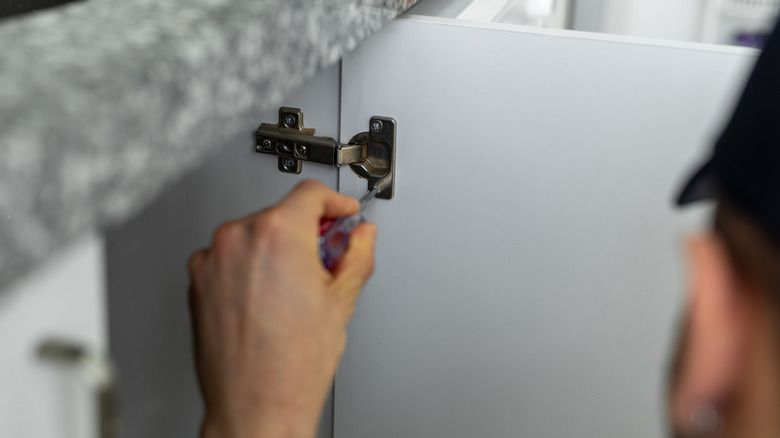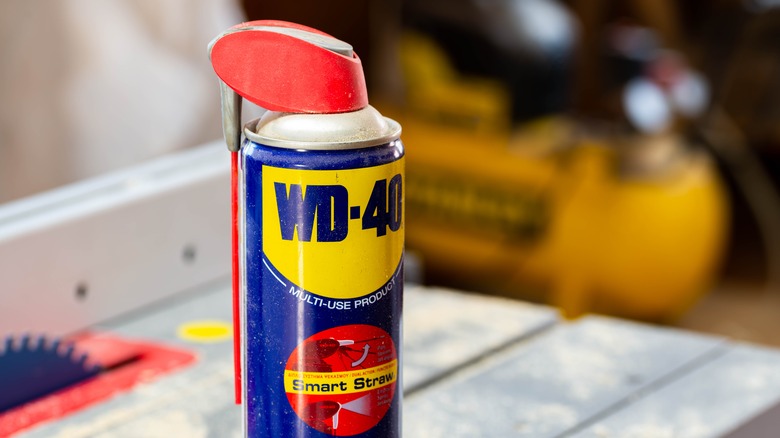Why You Should Think Twice About Putting WD-40 On Your Door Hinges
We just don't take the time to appreciate the smaller things in life. Whether it was the childhood fun of knocking and running away or the continued sweet privacy it affords us as we use the bathroom, there's a lot to thank the humble door for. Then again, infuriating squeaks are the natural enemies of door-users everywhere.
The problem is ubiquitous, which means that a huge array of tried–and–tested hacks are available to those at the mercy of squeaky hinges. From petroleum jelly to hairspray, everybody seems to have a different preferred method of stopping that squeak when the issue arises. You might be wondering whether WD-40, that versatile one-stop solution to a range of household problems, could be the answer here, too.
While it can certainly be effective at doing just that, WD-40 can also be potentially harmful for those hinges if certain steps aren't taken. Though the product is fantastic for tackling a range of household tasks — removing excess gunk from the crevices of our gadgets, for instance — it may not always be the best choice for every cleaning or maintenance job.
WD-40 and the (possible) curse of the rusty hinges
Often, the squeak of a door is associated with oldness, rust, cobwebs, and cheesy old horror movies. However, far newer buildings can develop squeaky hinges. WD-40 notes that lubrication can be the key to easing the problem, as friction can be the culprit. The product itself can be used to ease this through careful application on the offending hinge itself, but issues can arise if the product isn't removed properly after being used for this purpose.
A spray-and-forget approach with WD-40 is not recommended. Scheel Window & Doors' own Brian Gow reports that "door hinges will slowly darken and turn black and dirty looking" when wantonly exposed to the versatile product.
This can happen because WD-40 reacts with moisture, thereby potentially causing a build-up of grime. Such things can cause problems in the first place, and so the likes of petroleum jelly can be a better fit for the job. This isn't to say, however, that WD-40 cannot be used on door hinges sparingly and carefully.
The vital thing to bear in mind is to protect the rest of the area while spraying/applying — veteran DIYers will be more than familiar with the concept of laying papers and protecting the rest of the room from splashes, drips, and so on — and to meticulously clean it away after doing so. Gow suggests a cleaning tool even trustier than WD-40, the classic soapy water, for the purpose.

